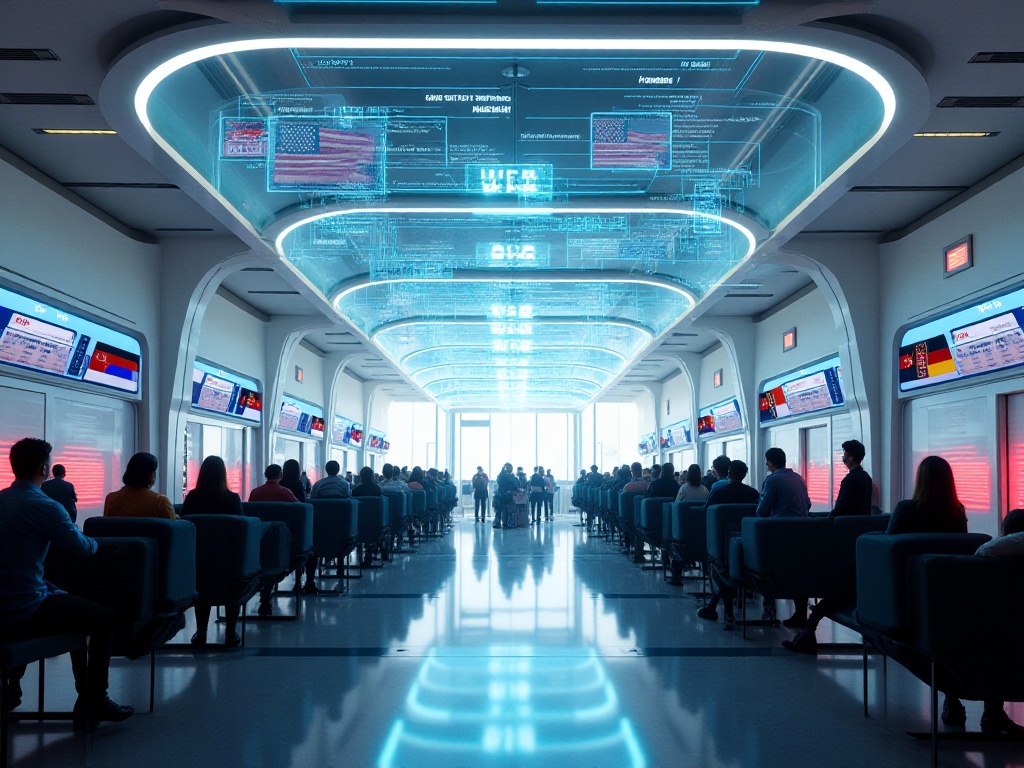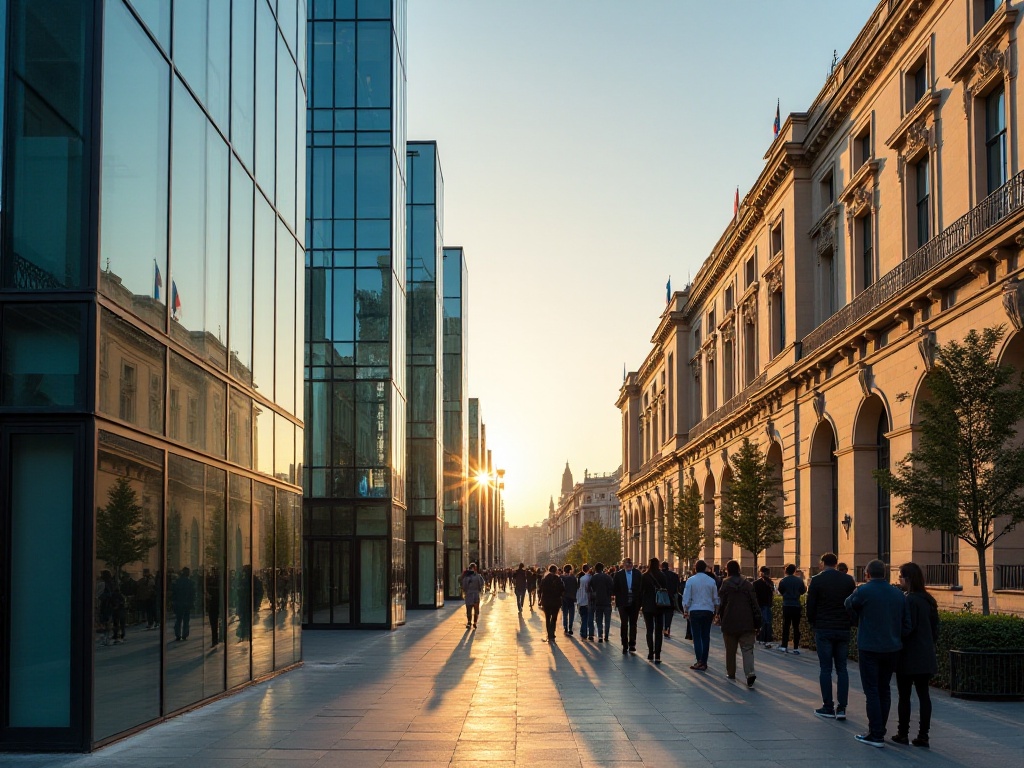Opening Thoughts
To be honest, before preparing for the Schengen visa, I was quite frightened by various rumors. Friends around me kept saying "the documentation is extremely troublesome," "the rejection rate is super high," "the review is particularly strict," and some even said "don't even think about it if you don't have 500,000 in savings." At that time, I was extremely anxious, feeling like the Schengen visa was an insurmountable mountain.
Every time I came across someone sharing their visa experience, I would study it carefully, afraid of missing any important information. During that period, my bookmarks were filled with various visa guides, and my phone's notes were full of various precautions. Honestly, thinking back to that anxious feeling now seems a bit amusing. Because after this personal experience, I found that things weren't as scary as rumored.
Visa Decoding
I remember when I first opened the Schengen visa document checklist, it felt like receiving an extremely difficult math test before college entrance exams. Looking at the packed list of requirements, my heart sank. Employment certificate, work certificate, income proof, bank statement, itinerary arrangements, hotel reservations, round-trip flight bookings, travel insurance... this string of technical terms gave me a headache.
However, when I calmed down and carefully studied each requirement, I suddenly realized these requirements were actually quite reasonable. Visa officers essentially need to confirm two things: whether you can afford this trip and whether you will return on schedule. Simply put, they need to verify that you're a law-abiding tourist, not someone planning to work illegally in Europe.
For example, employment and work certificates prove you have a stable job in your home country and won't overstay abroad. Income proof and bank statements show you can afford the travel expenses. As for itinerary arrangements, hotel reservations, and flight bookings, they let visa officers understand whether your travel plans are reasonable and feasible.
Practical Experience
My experience applying for a French visa in 2023 is still interesting to think about now. The entire preparation process took about two weeks - not too long, but not too short either. The first few days were mainly spent collecting various document templates and studying others' shared experiences. Then came preparing my own documents and repeatedly revising them. The final days were spent printing, binding, and checking everything.
What impressed me most was the day I submitted materials at the visa center. I expected to meet the legendary "unfriendly staff," but the staff were actually very nice and patiently answered all my questions. I remember being worried that my materials might be too simple, but the staff reassured me: "It's not about quantity but quality; as long as it explains everything clearly, it's fine."
They also told me some encouraging news: throughout 2023, the Schengen visa approval rate for Chinese applicants reached 94.8%. This number was far higher than the "30% approval rate" I had heard before. Come to think of it, since we're traveling for tourism and prepared complete documentation, visa officers had no reason to deny our visas.
Common Misconceptions
When it comes to visa materials, the bank statement might be the most worrisome. I previously saw people online saying "you need 200,000 in savings" or "account balance must be maintained for over six months," which really scared me. Later, through on-site investigation and discussions with experienced friends, I found these claims were somewhat exaggerated.
From my observation, generally speaking, an average daily budget of 100-200 euros is completely sufficient. This budget already includes accommodation, dining, transportation, and sightseeing costs. For example, if you plan to stay in Europe for 15 days, then bank statements showing 30,000 to 40,000 RMB would be completely adequate. Of course, this is just a reference, and specifics should depend on your itinerary.
Interestingly, I know a friend who prepared a bank statement showing 100,000 RMB, but the visa officer actually asked: "Why do you need so much money? Your itinerary budget only requires about 30,000." This shows that visa officers care more about whether your bank statement matches your itinerary budget rather than simply looking at the amount.
Another common misconception is thinking that property certificates or car ownership certificates are necessary. Actually, these aren't essential - visa officers mainly look at whether your financial strength can support this trip, not how many fixed assets you have in your home country. In my application, I only provided salary records and bank statements, and still got approved smoothly.

Practical Advice
If I had to give one crucial piece of advice to friends preparing for visa applications, it would be: pay serious attention to itinerary planning. I remember spending three whole days planning my itinerary while preparing visa materials. Not because it was particularly complex, but because I needed to ensure every detail could withstand scrutiny.
First, the time arrangement should be reasonable. My suggestion is to allocate at least 2-3 days for each city, allowing you to both avoid rushing and fully experience local culture and customs. For example, my itinerary was 4 days in Paris, 2 days in Lyon, 3 days in Nice, then back to Paris for 2 days. This arrangement considered both main attraction visiting time and some flexible time.
Second, transportation connections should be smooth. Europe's transportation system is very developed, with convenient trains, planes, and buses. When planning my itinerary, I specifically checked the transportation schedules between cities to ensure transfer times weren't too tight but also didn't waste too much time waiting.
Hotel bookings are also important. My experience is to choose hotels close to train stations or metro stations, which not only makes travel convenient but also gives visa officers a reliable impression. However, note that it's better to choose room types with free cancellation, so if the visa isn't approved or your itinerary changes, you won't suffer too much loss.

Application Process
The entire Schengen visa application process can be divided into five steps: preparing materials, booking an interview, submitting the application, waiting for review, and collecting your passport. Sounds simple, right? But each step has its key points and considerations.
During material preparation, the most important thing is to prepare everything according to the consulate's requirements. Now all consulates' official websites have detailed material checklists. I suggest printing it out and checking items one by one. I posted the checklist on my wall and checked off each item as I prepared it, which was quite organized.
Booking an interview is a technical matter. 2024 data shows that during peak season, you need to book at least 45 days in advance, otherwise you might not get your preferred time slot. I started booking immediately after confirming my itinerary to avoid time conflicts. I suggest having several backup dates when booking, as popular time slots fill up quickly.
When submitting the application, dress appropriately to make a good impression. Although visa centers are now very user-friendly, maintaining a professional image is always right. I specifically wore formal attire, and felt the staff's attitude was particularly good.
The review waiting process might be quite anxious, but there's really nothing to worry about. Review speeds are quite fast now, usually taking 7-15 working days for results. I received my visa approval SMS notification on the 10th day, even faster than expected.
Collecting your passport is even simpler - just bring your receipt to the visa center. When I went, there weren't many people, and it only took about ten minutes. The moment I saw the Schengen visa sticker in my passport, all previous anxiety and worries vanished.

Practical Tips
Through this application experience, I've summarized some practical tips that I hope will help friends preparing for visa applications.
First are document organization tips. I suggest preparing a complete visa material checklist and arranging it in A to Z order. For example, Category A is identity documents (passport, ID card copies, etc.), Category B is financial proof (salary records, bank statements, etc.), Category C is itinerary materials (flight bookings, hotel reservations, etc.). This not only helps visa officers quickly find needed materials but also gives a well-organized impression.
When I submitted my materials, the staff specifically praised my organization method. They said many applicants' materials are messy, some even mixing important documents with draft paper, which not only affects work efficiency but also leaves a bad impression on visa officers.
Second are budget planning tips. I suggest dividing the budget into several categories: transportation, accommodation, dining, attraction tickets, and shopping. Each category should have some flexible funds reserved, so when visa officers ask about specific budgets, you can answer with reason and evidence.
I also suggest preparing a detailed itinerary, not only listing which attractions to visit each day but also noting specific transportation methods and estimated costs. Such an itinerary not only helps visa officers understand your travel plans but also helps you better plan the entire journey.

Important Notes
Regarding important notes, the most crucial is maintaining honesty. I know some people try to "enhance" their materials to improve approval rates, like photoshopping bank statements or fabricating employment certificates. These practices are very dangerous.
I remember a friend who tampered with their bank statement to show sufficient financial strength. After being discovered by the visa officer, they were not only rejected but also received a bad record. This means they'll face stricter scrutiny when applying for visas in the future - not worth it.
So my advice is, better to have ordinary materials than risk fraud. Visa officers actually understand ordinary workers' income levels - as long as your income can support this trip's expenses and your materials are genuine and valid, the chances of approval are still very high.
Another point to note is don't rigidly copy others' application materials. Everyone's situation is different, and others' successful experiences may not suit you. Most important is preparing genuine and valid materials based on your actual situation.
Experience Summary
Through this application experience, my biggest realization is: visas aren't difficult, what's difficult is adjusting your mindset. Many people take visas too seriously, thinking Schengen visas are particularly hard to get, resulting in unnecessary pressure.
Actually, thinking carefully, visa officers are ordinary people too - their job is to review applicants' materials and ensure applicants meet entry conditions. As long as we prepare materials according to requirements and maintain an honest attitude, the approval probability is very high.
I think the most important thing is having confidence. Don't be scared by sensational rumors or influenced by others' experiences. Everyone's situation is different; what's important is doing your own preparation well.

Future Outlook
From current trends, the Schengen visa application process is becoming increasingly convenient. Statistics show that in the first quarter of 2024, Schengen countries' visa processing times decreased by an average of 30%. This means future application processes might become more efficient.
Moreover, with the advancement of electronic procedures, many materials can now be submitted online. This not only saves applicants' time but also improves visa processing efficiency. I believe in the near future, applying for a visa will become as simple as booking a flight.
Looking back now, my initial worries were really unnecessary. If you're also preparing to apply for a visa, I hope these shares can give you some inspiration and confidence. Know that the most difficult part isn't the application itself, but the courage to take the first step.
Actually, a Schengen visa is like an admission ticket to a European journey - as long as you make thorough preparations and apply with a sincere attitude, the chances of success are really high. So, don't be scared by those rumors, boldly pursue your European dream!




